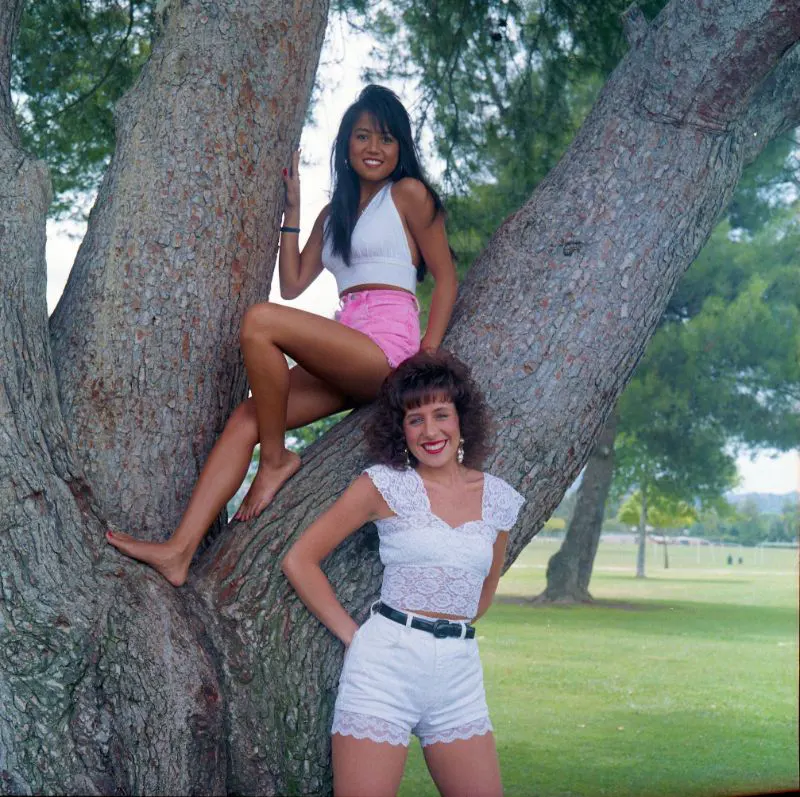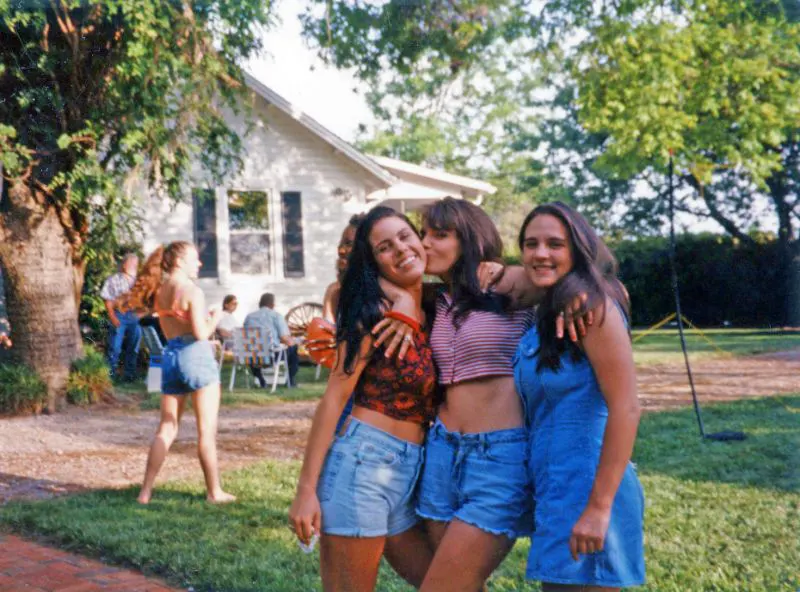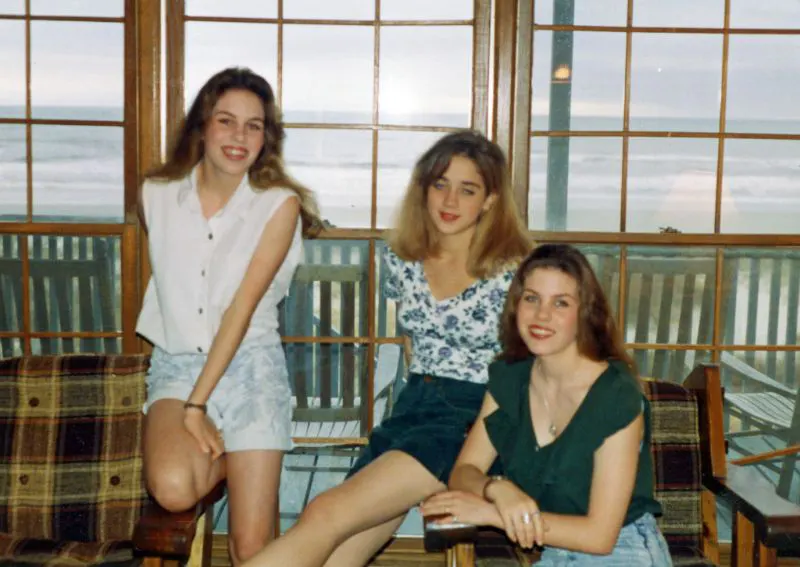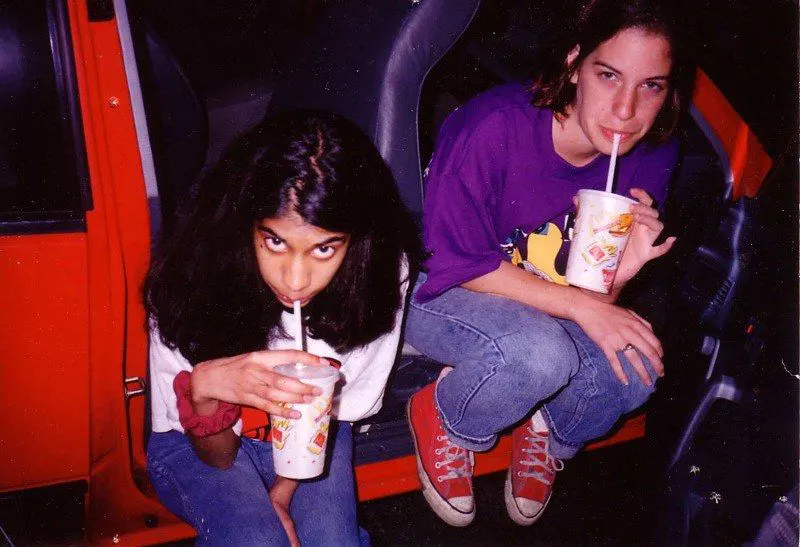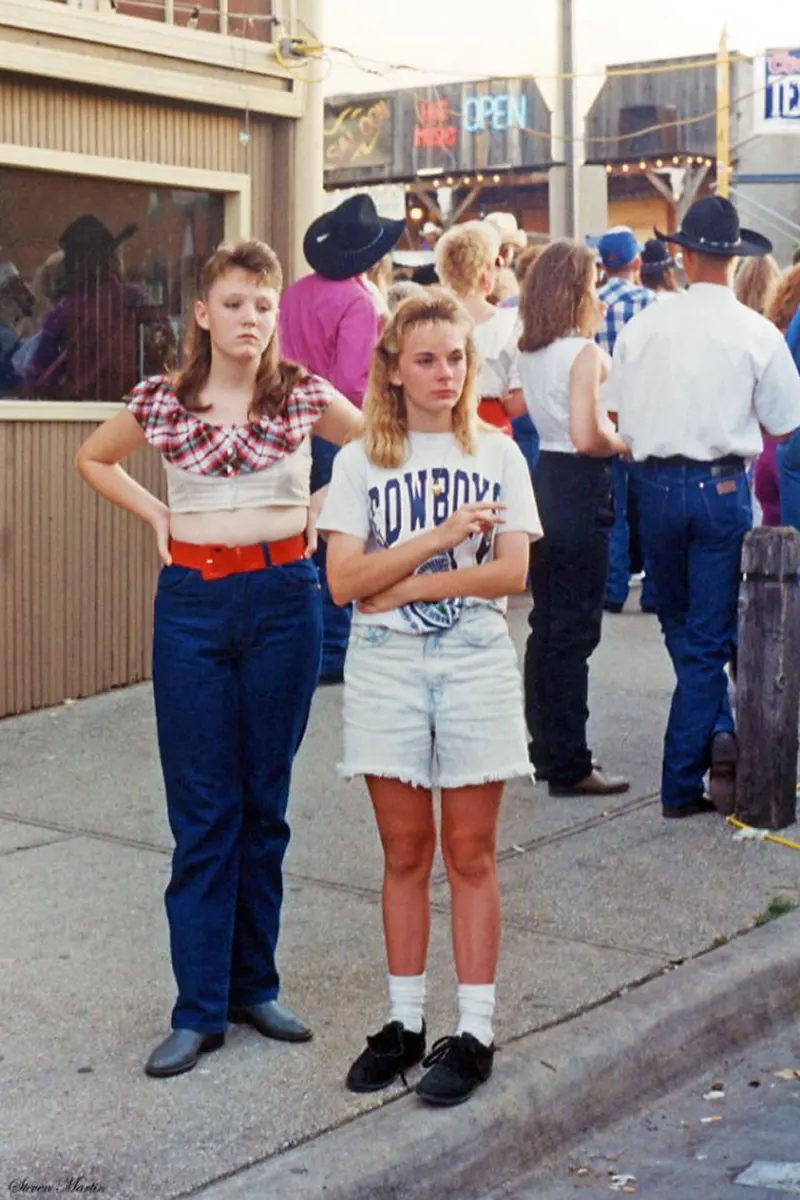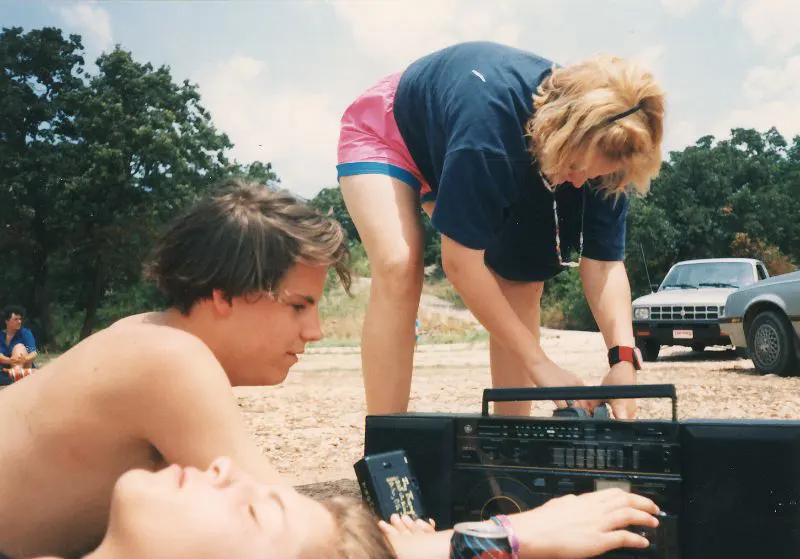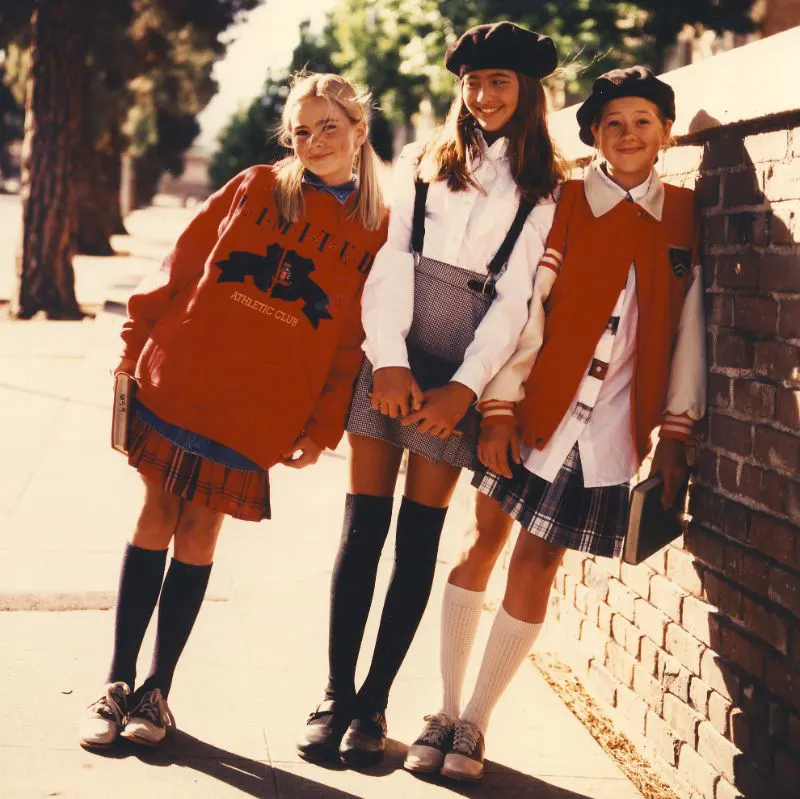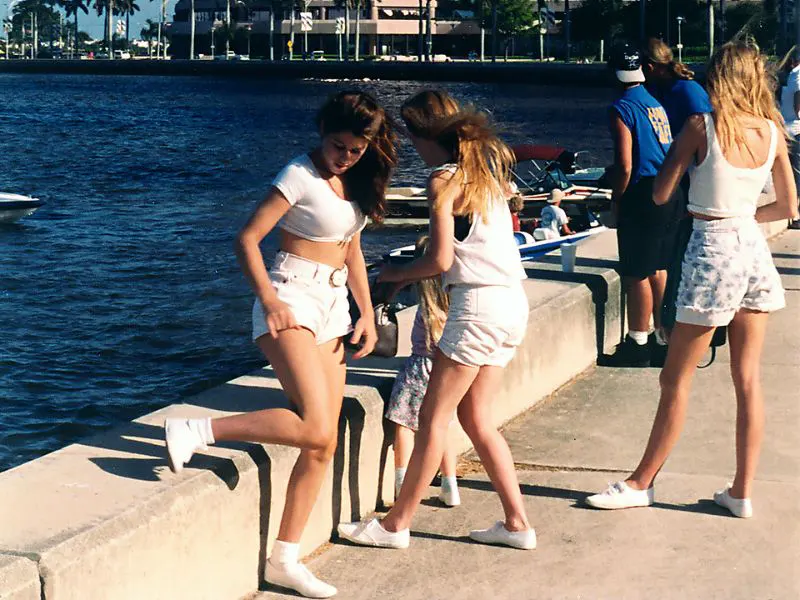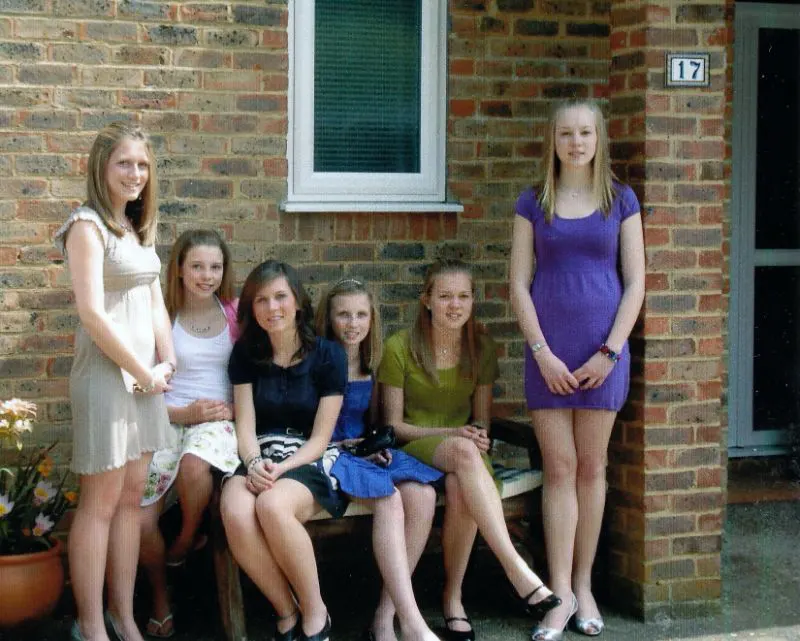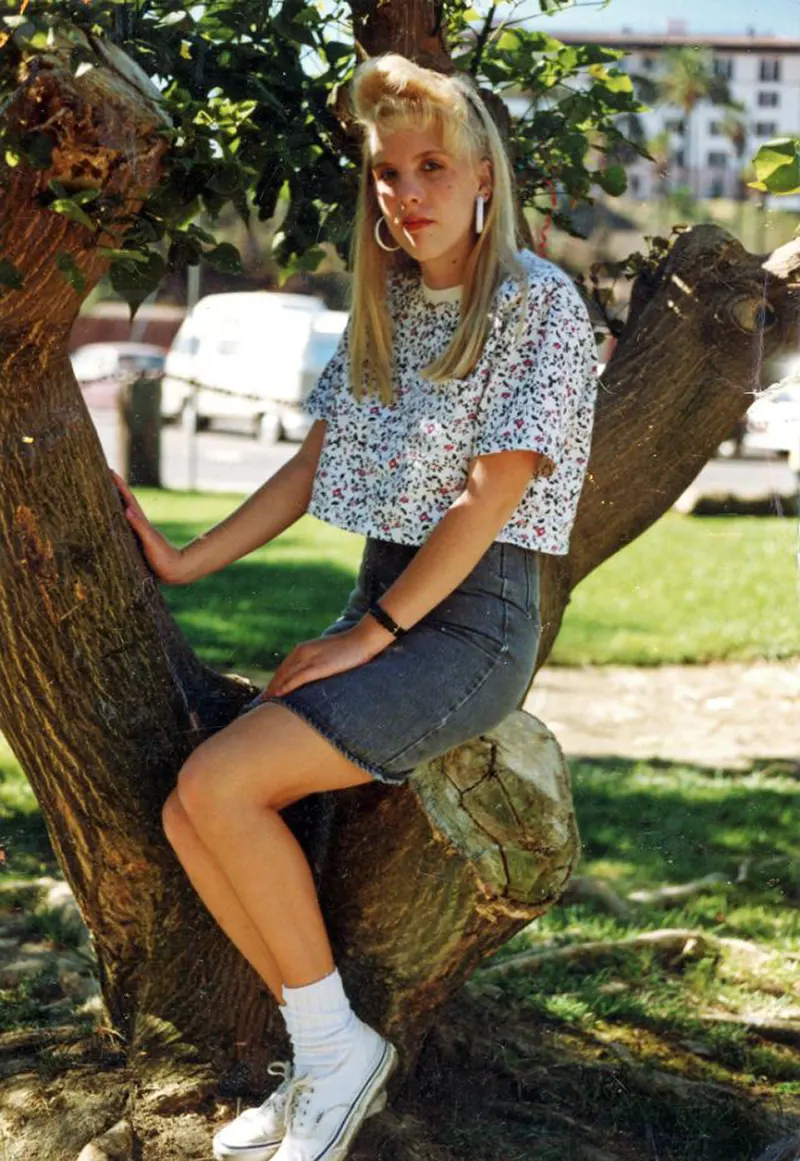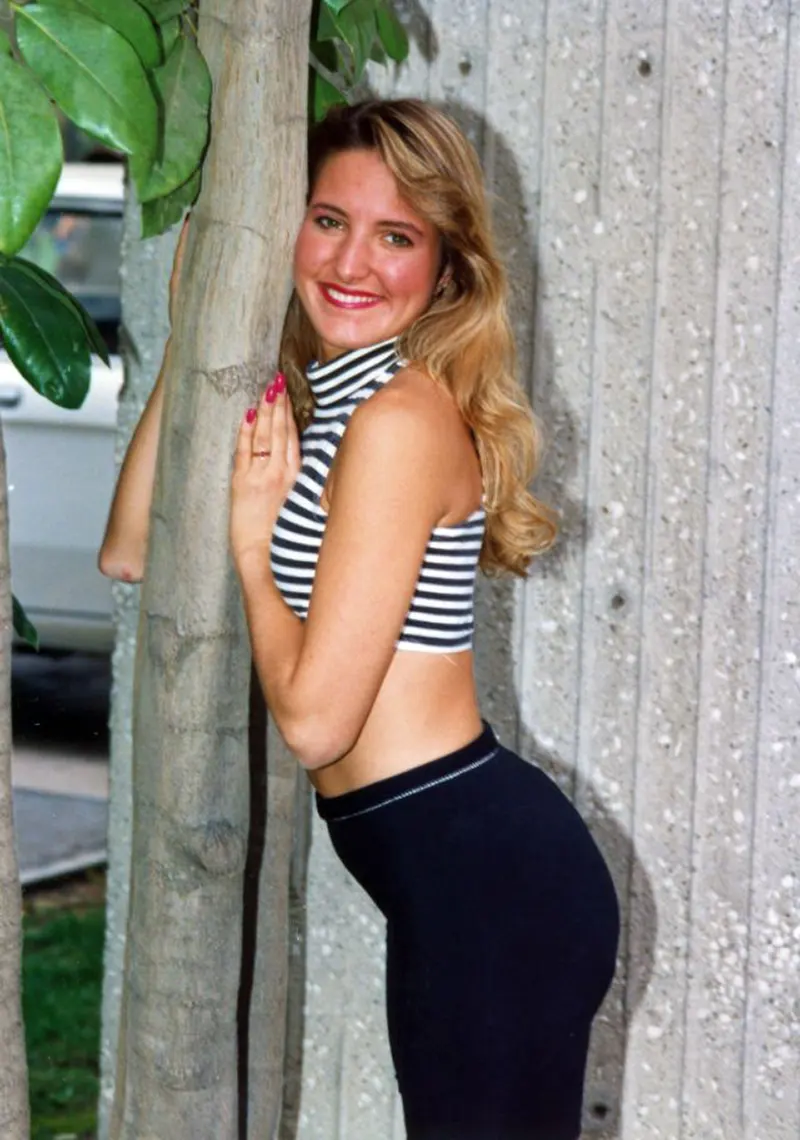During the early 1990s, certain late 1980s fashion elements continued to be popular among people of all genders. However, the emergence of grunge and alternative rock music played a pivotal role in catapulting the simple and deliberately unkempt grunge look into the mainstream fashion scene by the year 1994. This anti-conformist approach to style also fostered the rise of the casual chic aesthetic. It included wardrobe staples like T-shirts, jeans, hoodies, and sneakers, which remained in vogue well into the 2000s. Furthermore, the fashion landscape of this decade saw a notable trend of recycling styles from earlier eras, particularly drawing inspiration from the 1950s, 1960s, and 1970s. The amalgamation of these influences gave rise to a distinctive fashion. One of the most influential subcultures of the 1990s was the grunge movement. Spearheaded by bands like Nirvana and Pearl Jam, grunge fashion was an embodiment of anti-establishment sentiment. It rejected conventional beauty norms in favor of a deliberately disheveled appearance. Ripped jeans, oversized flannel shirts, and combat boots were emblematic of this style. A notable trend during the 1990s was the infusion of athletic wear into everyday fashion. Tracksuits, windbreakers, and sneakers transcended their utilitarian origins to become fashion statements. Brands like Nike and Adidas took center stage, capitalizing on the demand for sporty, comfortable attire. The athleisure trend represented a fusion of style and functionality, catering to the active lifestyle embraced by many young women. Beyond mainstream trends, the 1990s saw the flourishing of various subcultures, each with its own distinctive fashion identity. Gothic fashion embraced dark, moody aesthetics, featuring black clothing and heavy makeup. Rave culture, on the other hand, embraced neon colors and bold, eclectic patterns. Punk fashion remained an enduring symbol of rebellion, characterized by its edgy and DIY approach. The 1990s was a time when fashion began to be valued as an intellectual form. During this period, alternative fashion strategies became part of the commercial format. Resistance to generally accepted fashion trends became one of the basic principles of fashion in the 1990s. Elements of deconstruction in costume are becoming an important element of commercial fashion. Due to increased availability of the Internet and satellite television outside the United States, plus the reduction of import tariffs under NAFTA, fashion became more globalized and homogeneous in the late 1990s and early 2000s.
(Photo credit: Pinterest / Wikimedia Commons). Notify me of new posts by email.
Δ Subscribe

